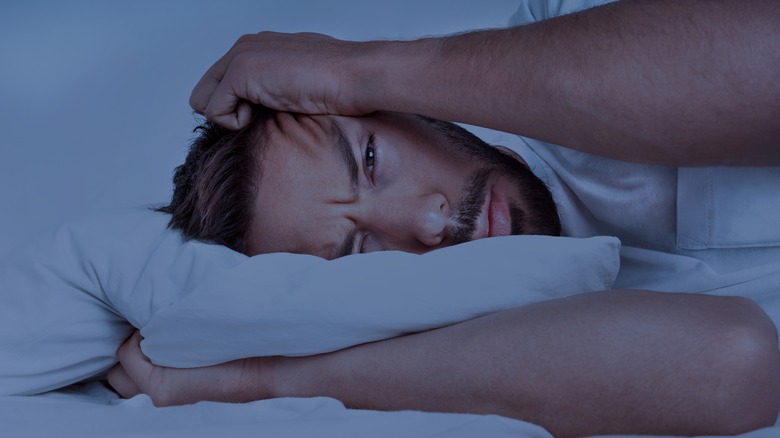Is Narcolepsy Genetic?
Sleep disorders are more common than we think. According to Cleveland Clinic, nearly 70 million people in the United States have sleep disorders, one of which is narcolepsy. This chronic neurological and sleep disorder limits the brain's ability to control sleeping and waking up.
The National Institute of Neurological Disorders and Stroke reports says that in the United States alone, 135,000 to 200,000 people have narcolepsy. The source also says that the condition can affect anyone at any time in their life, but symptoms usually begin at a young age, between 7 to 25.
Narcolepsy has various possible causes, which include low hypocretin levels, autoimmune disorders, brain injury, or other triggers like psychological stress and certain infections (via Healthline). If you have narcolepsy, it's tempting to question whether the condition is predominant in your bloodline. Can narcolepsy be genetic? The short answer is yes. However, Medical News Today establishes that there still hasn't been enough evidence to point out a single gene leading to narcolepsy. Nevertheless, certain gene varieties might increase the risk of someone developing narcolepsy.
The genetic connection to narcolepsy
There are two types of narcolepsy: type 1 and type 2. According to Medical News Today, type 1 narcolepsy's symptoms includes cataplexy, daytime sleepiness, unusual sleep patterns, and reduced neurons in the hypothalamus. A 2022 study published in the journal StatPearls notes that a particular gene variant is present in about 95% of people with this type of narcolepsy. It is also present in about 20% of people who do not have the condition.
The source indicates an uncertainty over what causes type 2 narcolepsy, which does not include the symptom of cataplexy. Hypotheses include reduced orexin receptor signaling, less loss of orexin cells, or some other mechanism that has yet to be determined.
MedlinePlus also reiterates that parents, siblings, and children of people with cataplexy-related narcolepsy have a 40 times higher risk of developing the condition than people not related to such carriers. However, the source adds that most narcolepsy patients have no connection with people with a history of the condition in their families. Generally speaking, narcolepsy can be genetically-triggered, but there's no clear pattern of how people inherit the disorder.
Healthline explains that narcolepsy is probably an autoimmune disorder, which occurs when the body's immune system mistakenly attacks healthy tissues destroying certain brain cells that produce hypocretin, a peptide that regulates the sleep-wake cycle.
Other potential causes of narcolepsy include brain injury, hormonal changes, Pandemrix (a vaccine used for the H1N1 flu in Europe in 2009), severe infection, and stress.
Narcolepsy diagnosis and treatment options
A 2016 study published in the journal Sleep and Breathing revealed that narcolepsy often goes undiagnosed or misdiagnosed as other conditions like mental health disorders or emotional problems. Since various factors trigger narcolepsy, it's crucial to consult with your doctor or a sleep specialist who can thoroughly examine you to understand the underlying cause. The National Organization for Rare Disorders identifies two main tests to diagnose narcolepsy. They include a polysomnogram which measures brain wave changes, heart rate, eye and limb movements, breathing, and muscle tone. This test can be followed by a multiple sleep latency test which measures how fast an individual falls asleep during the day.
As for the cure, various sources, including NHS, state that no specific one has been identified for narcolepsy. However, patients can modify their lifestyle choices and improve their sleeping habits to help manage narcolepsy symptoms. Things like practicing good sleep habits and gaining emotional support can help. In the case of medications, WebMD notes that armodafinil, methylphenidate, and modafinil might help reduce excessive daytime sleepiness. However, you may experience side effects, including headache, nausea, irritability, and gastrointestinal problems. Your doctor may also prescribe medications like antidepressants, sodium oxybate, pitolisant, or solriamfetol to control your symptoms.



